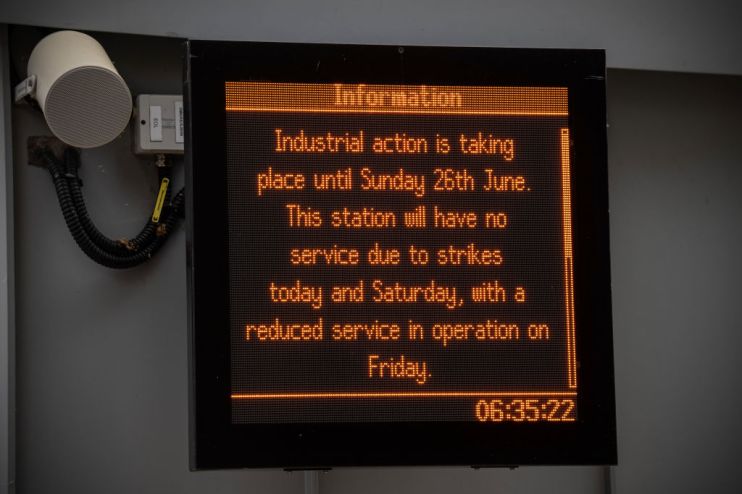Govt’s union bill could break law, legal experts say

Lawyers have said the government’s plans to overturn laws that prevent agency staff from filling in for striking workers could face legal challenges under both UK and international law.
The comments come after the government set out plans to repeal the “burdensome legal restrictions” that block staffing agencies from sending in temporary workers during strikes.
Business secretary Kwasi Kwarteng said: “Repealing these 1970s-era restrictions will give businesses freedom to access fully skilled staff at speed, all while allowing people to get on with their lives uninterrupted to help keep the economy ticking.”
However, lawyers speaking to City A.M. said the government’s planned shakeup could face legal challenges under various international treaties, including the European Convention on Human Rights (ECHR).
“There remain significant questions as to whether such measures are compliant with the UK’s international obligations under the ECHR,” employment lawyer Eric Gilligan told City A.M.
The ECHR – an international treaty signed by 46 European countries in the wake of World War II – guarantees the rights of signatory states’ citizens to form trade unions.
Specifically, the plans to allow striking workers to be replaced with agency staff could hinder union members’ right of association under Article 11 of the ECHR.
Gilligan said the government could also face backlash from the European Union due to clauses in the post-Brexit trade agreement allowing the EU to take action if Britain violates the ECHR.
Thompsons Solicitors’ head of trade union law Richard Arthur said the government’s plans could fall at the first hurdle, as he suggested the law could be thwarted at the consultation level.
“The legislation required will take the form of regulations to be made under the authority of the Employment Agencies Act 1973,” Arthur said.
“Regulations under that Act can only be made after consultation with representative bodies, and, this time, there hasn’t even been an announcement of a consultation.”
The Association of Professional Staffing Companies (ASPCo) also hit out at the plan after saying it was surprised “by the unexpected move.”
“It is our view that the voice of the recruitment sector needs to be heard in this matter and discussions are needed around how such a proposal would stand in the context of international labour standards,” said ASPCo’s global public policy director Tania Bowers.
Transport and business secretaries Grant Shapps and Kwasi Kwarteng announced the move on Thursday as 40,000 railway workers walked out on the second of a three-day strike.